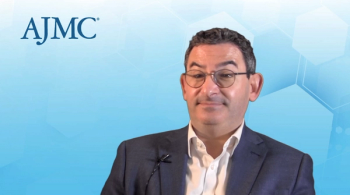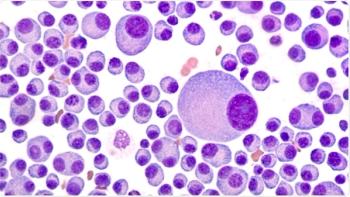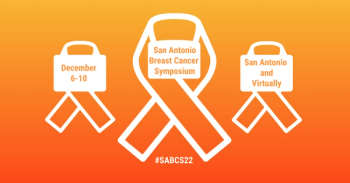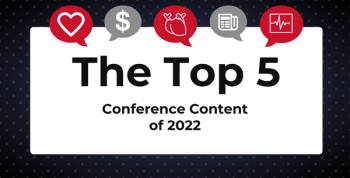
The 72nd American College of Cardiology Scientific Session Together With the World Congress of Cardiology (ACC.23/WCC), runs from Saturday to Monday in New Orleans, Louisiana.

The 72nd American College of Cardiology Scientific Session Together With the World Congress of Cardiology (ACC.23/WCC), runs from Saturday to Monday in New Orleans, Louisiana.

Braden Manns, MD, MSc, a nephrologist and health economics researcher at the University of Calgary in Canada, will present the results of a randomized trial evaluating the impact of removing co-payments for drugs that treat chronic conditions on cardiovascular outcomes during the American College of Cardiology Scientific Sessions in New Orleans, Louisiana, on Sunday, March 5.

Utilizing real-world evidence that applies to the specific care needs of certain patient populations can promote timely decision-making among payers and providers on the use of effective cancer therapies available on the market, said panelists at the 2022 Patient-Centered Oncology Care® (PCOC) meeting.

At Patient-Centered Oncology Care®, Debra Patt, MD, PhD, MBA, of Texas Oncology, discussed managed care considerations that arise from the groundbreaking DESTINY-Breast04 study presented earlier this year.

A panel of experts discussed the explosion of information and advances in cancer genomics and the accompanying challenges of understanding the data and taking action.

Guideline-directed cancer care—with help from a clinical support tool—can close disparities while reducing costs more efficiently than other means, such as prior authorization.

While the current therapies are effective for treating branch retinal vein occlusion (BRVO) and central retinal vein occlusion (CRVO), they are inadequate for long-term treatment in clinical practice, according to an analysis of real-world data.

Two studies looking at a higher dose of aflibercept found that an 8-mg dose can be maintained at longer dosing intervals with similar benefits and no additional safety signals compared with the 2-mg dose.

Much of the evidence that has been used to base current standard of care for diabetic eye diseases stems from studies performed by the DRCR Retina Network over the years.

The BUTTERFLEYE trial sought to determine if aflibercept, an anti–vascular endothelial growth factor (anti-VEGF) therapy, was equivalent to laser photocoagulation, the gold standard to treat retinopathy of prematurity (ROP) in preterm babies.

Patients with wet age-related macular degeneration (AMD) who are responsive to anti–vascular endothelial growth factor (anti-VEGF) therapy experienced visual gains with no additional injections in the 6 months after treatment with the gene therapy.

Home optical coherence tomography (OCT) has shown there is a wide degree of heterogeneity in fluid dynamics and treatment response that may not be clear during regular office visits and scans. Presenters reviewed the latest data in home OCT to manage wet age-related macular degeneration (AMD).

A review of data on 2 mitochondrial membrane stabilizers—risuteganib and elamipretide—has highlighted the potential to not just slow disease progression but actually reverse vision loss in patients with intermediate dry age-related macular degeneration (AMD).

For patients with geographic atrophy (GA) taking pegcetacoplan, the drug’s effect to slow disease progression increases over time as patients take the drug, said Eleonora Lad, MD, PhD, associate professor of ophthalmology, Duke University.

The Angiogenesis, Exudation, and Degeneration 2023 meeting will be held virtually with a program focused on understanding and treating neovascular, exudative, and degenerative diseases of the eye.

With no treatment options currently available for geographic atrophy (GA), an advanced form of dry age-related macular degeneration (AMD), pegcetacoplan could fill a huge unmet need, explained Eleonora Lad, MD, PhD, associate professor of ophthalmology, Duke University.

Although allogenic stem cell transplant is increasingly used to treat multiple myeloma (MM) and other hematological conditions, there have been mixed efficacy results in the context of MM.

Jeremy Abramson, MD, director of the Jon and Jo Ann Hagler Center for Lymphoma at the Massachusetts General Hospital Cancer Center, shared his take on the potential benefits of chimeric antigen receptor (CAR) T-cell therapy in earlier lines of treatment.

The analysis, which was presented during the 64th ASH Annual Meeting and Exposition, highlighted stringent complete response data for patients 65 years and older and those with high cytogenic risk.

New data from the POLARIX STUDY show that substituting polatuzumab vedotin for 1 part of a classic first-line chemotherapy combination to manage diffuse large B-cell lymphoma improved progression-free survival without compromising health-related quality-of-life.

Results presented during the 64th American Society of Hematology Annual Meeting and Exposition could offer an effective option for those with relapsed or refractory DLBCL, even as chimeric antigen receptor T-cell therapy becomes standard of care for many patients.

In abstracts presented at the 64th American Society of Hematology Annual Meeting and Exposition, the investigational BTK inhibitor pirtobrutinib showed promising efficacy and safety in several types of B-cell lymphoma.

Evidence-Based Oncology™️ spoke with Lyons about the creation of this real-world data set and the pros and cons of different treatments for MDS.

An analysis presented during the 64th American Society of Hematology Annual Meeting and Exposition showed that patients with multiple myeloma were able to experience improved responses to the proteasome inhibitor ixazomib after switching from bortezomib.

Adetunji T. Toriola, MD, PhD, professor of surgery at Washington University School of Medicine, explains how breast cancer prevention campaigns for premenopausal women have changed and how RANK ligand inhibition could influence screening accuracy.

Our top coverage from this year’s San Antonio Breast Cancer Symposium (SABCS) included updated data on tamoxifen and trastuzumab deruxtecan, treatments long proven effective in the breast cancer space.

The American Journal of Managed Care® covered thousands of miles in 2022, virtually and in person, criss-crossing the country and the world to deliver the latest clinical data, trial results, and drug developments.

The 2022 European Hematology Association (EHA22) Congress convened June 9-12, 2022, in Vienna, Austria, and presented cutting-edge findings in hematology, including the potential of artificial intelligence, new treatment combinations in myelofibrosis, and more.

The top news out of the annual meeting of the American Society of Clinical Oncology (ASCO) highlighted findings in gliobastoma, HER2-low breast cancer, and Hodgkin lymphoma.

Health care providers must acknowledge unconscious bias and watch for it to make sure treatments are given equitably, said Mary Cushman, MD, professor of medicine at the University of Vermont, director of the thrombosis and hemostasis program at the University of Vermont Medical Center.

259 Prospect Plains Rd, Bldg H
Cranbury, NJ 08512
© 2025 MJH Life Sciences®
All rights reserved.
